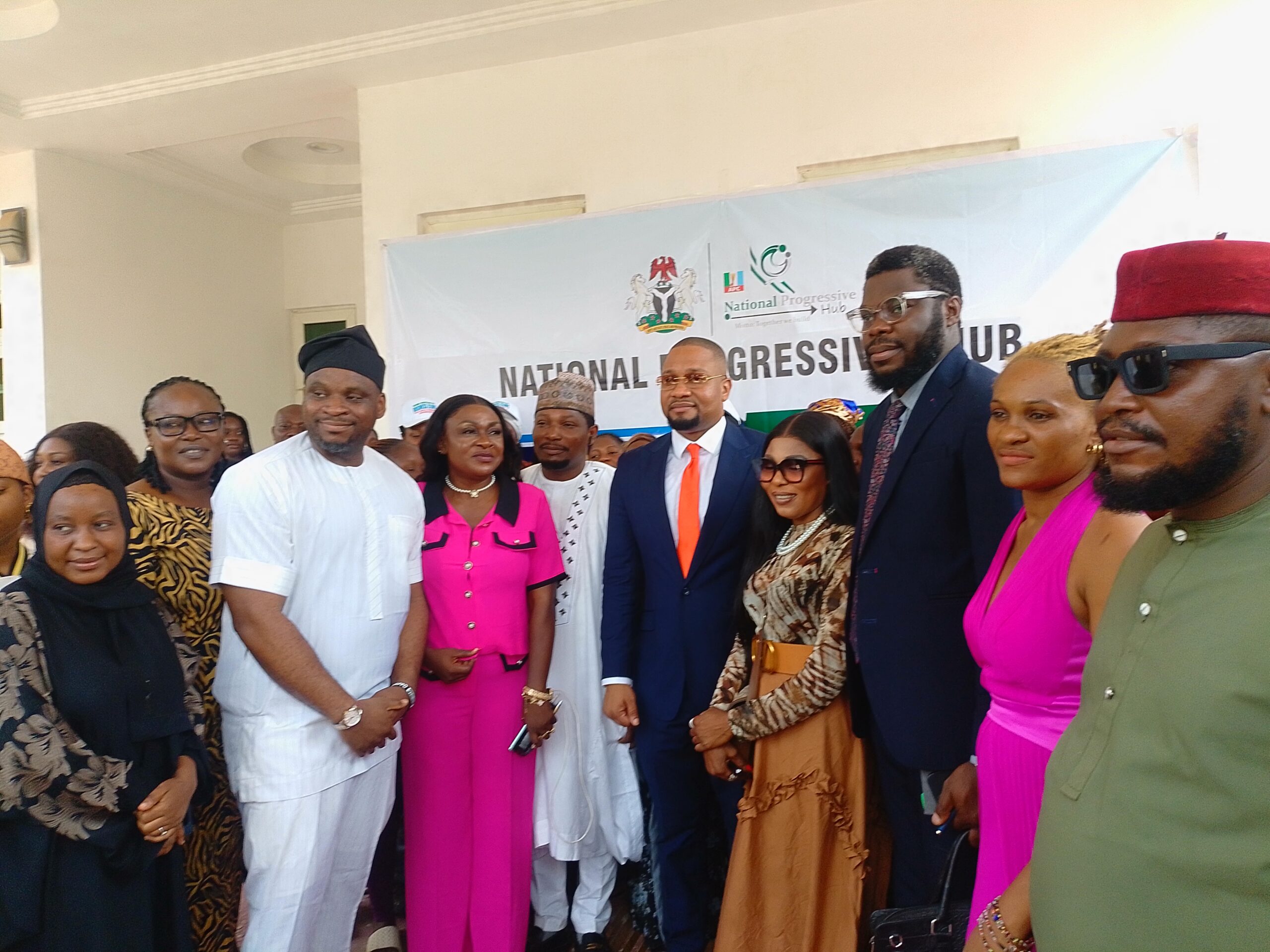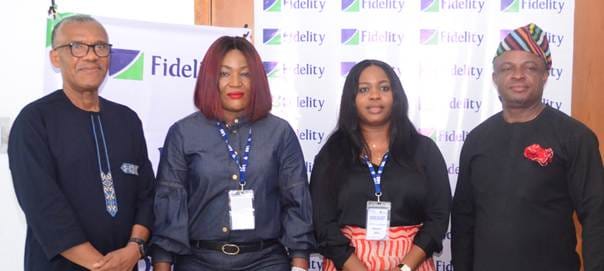Business
Sterling Bank, SMEDAN to create Nigeria’s largest SME database

One of Africa’s fastest-growing companies, Sterling Bank, has recently signed an agreement with the Small & Medium Enterprises Development Agency of Nigeria (SMEDAN) to establish a comprehensive database of Small and Medium Scale Enterprises (SMEs) in Nigeria. This will help in scaling intervention programs and providing tailored solutions that truly contribute to the growth of SMEs.

The signing ceremony took place in Lagos, where the Chief Executive Officer of Sterling Bank, Mr. Abubakar Suleiman, expressed his optimism about the collaboration. He emphasised that genuine collaborations, driven by opportunity rather than regulation, often yield positive outcomes. He regarded this partnership as one of those promising ventures, highlighting that no external regulatory pressure compelled their cooperation.

Suleiman stressed the MoU’s significance while noting the critical role of data in economic development. He asserted that the agreement marks the beginning of a journey towards a formalised economy, enabling the government to intervene effectively when necessary. Suleiman also emphasised the importance of SMEs having access to capital based on their historical data. In order to do this, he stressed the importance of developing an atmosphere that motivates SMEs to self-report, even if it is just to be eligible for SMEDAN services. Furthermore, Suleiman emphasised that self-reporting is the initial step for small and medium businesses to become auditable institutions.
Sterling Bank is committed to dedicating its resources to the success of the MoU and will advocate for government support of SMEs. Suleiman noted that the outcomes of this collaboration would benefit the entire banking industry, not just Sterling Bank.
Mr Olawale Fasanya, Director General of SMEDAN, expressed his appreciation for the bank’s initiative and highlighted the MoU’s immense value to SMEDAN’s operations. Fasanya stressed the criticality of data to their activities, citing their recent online registration of SMEs. Despite registering approximately 3.8 million SMEs through this initiative, the data still requires cleaning. Fasanya emphasized that the availability of accurate data would enable SMEDAN to connect SMEs operating within the same market.
Mustapha Otaru, Chief Product Officer at Sterling Bank, described the bank’s approach to managing SMEs as an ecosystem and emphasised the federal government’s importance of collaboration with SMEDAN. He acknowledged that progress is impossible without such partnerships.
Otaru said that in addition to providing access to finance, Sterling Bank aims to nurture SMEs and support their growth from micro to corporate levels. The bank achieves this through innovative solutions such as its common facility for fashion entrepreneurs and special bundled offerings. Sterling Bank’s products, according to Otaru, are strategically designed to align with its HEART (Health, Education, Agriculture, Renewable Energy, and Transportation) strategy, which the bank adopted in 2018 to focus its investments on key sectors of the economy.
Bolanle Tyson, the Head of SME Products at Sterling Bank, underscored the integral role of SMEs in economic growth. She expressed her enthusiasm for the partnership with SMEDAN, envisioning a lasting collaboration that leverages combined resources to drive economic growth.

Business
APC support group trains over 50 women entrepreneurs

The National Progressives Hub (NPH), a support group for the ruling All Progressives Congress (APC), has trained over 50 women entrepreneurs running Micro, Small, and Medium-sized Enterprises (MSMEs) to enhance their financial inclusion and business growth.

The women, selected from NPH and other support groups, participated in the training held in the Asokoro area of Abuja on Tuesday.

The National Coordinator of NPH, Hon. Bukie Okangbe, stated that the event was part of activities to celebrate the 2025 International Women’s Day.
“It is a business clinic. We brought in experts and trainers to conduct the training, including facilitators from the Small and Medium Enterprises Development Agency of Nigeria (SMEDAN). This initiative is designed for APC women and every party member to celebrate Women’s Month. We also want women to be aware of government policies,” she emphasized.
Kingsley Ndimele, a Business Consultant and Financial Economist, noted that while businesses in Nigeria are performing fairly well, there is significant room for improvement, particularly in addressing policy gaps, access to information, and knowledge acquisition.
“I am here to train small business owners on how to grow and scale their enterprises. Although businesses in Nigeria are making progress, challenges persist due to policies, government intervention, and the business owners themselves.
“The average Nigerian entrepreneur has the potential to perform better if key issues such as policy framework, infrastructure, and knowledge gaps are addressed. Growing a business requires a certain level of knowledge capacity. If you lack that capacity, no matter how much funding you receive, you may not succeed,” he explained.
He also highlighted the issue of funding as a shared responsibility between the government and entrepreneurs.
“The Nigerian government has been supporting MSMEs through funding and capacity-building initiatives. However, the question remains: Are Nigerian entrepreneurs ready to maximize these opportunities? Do they meet the eligibility criteria?” he asked.
A representative of the Director-General of SMEDAN, Peter Adeshina, stated that the training aimed to educate small business owners on structuring their enterprises to access available opportunities.
“SMEs are critical to economic prosperity and growth, and our role is to support them. A business clinic is like a medical clinic—when you visit, you receive treatment, feel revitalized, and can then expand and succeed.
“Our objective here is to provide guidance on structuring businesses for growth. Currently, finance in Nigeria is costly due to high interest rates. However, there are measures SMEs can take to secure affordable loans and grants.
“For instance, formalizing a business—something as simple as registering it—can determine whether one can access opportunities or not. Business owners should also open dedicated business accounts to establish a credit history, making them more trustworthy to investors,” he advised.
He also expressed optimism that the training would enhance SMEs’ operations.
“At the end of this event, we expect SMEs to function more effectively. With the information provided, they will be able to restructure their businesses, abandon ineffective practices, and embrace growth.
“Accessing SMEDAN opportunities requires registration with the agency. Fortunately, SMEDAN has state offices nationwide where business owners can seek support. We anticipate that, after this exercise, more entrepreneurs will be better positioned for success,” he added.
Also, the Senior Special Adviser to the Minister of State for Industry, Trade, and Investment, Adeshile Deji, encouraged the trainees to engage in continuous capacity-building programs from relevant agencies to enhance their skills and business operations.

Business
Kano residents benefit from Fidelity Food Bank initiative

Over 1,500 residents have benefited from a Fidelity Food Bank outreach in Kabuga community, Dala Local Government Area of Kano state.

The Corporate Social Responsibility (CSR) initiative, executed in partnership with Misnoory Foundation, saw staff of the bank distribute essential food items to support people during the holy month of Ramadan.

Commenting on the distribution event, Divisional Head, Brands and Communications, Fidelity Bank Plc, Dr Meksley Nwagboh, emphasized the bank’s dedication to supporting its host communities through impactful projects.
“Social responsibility is at the heart of who we are as a bank. Our Fidelity Food Bank initiative is one of the way we drive social welfare in our host communities. The initiative was launched to support the vulnerable and alleviate the impact of hunger in the society as part of our contribution to Sustainable Development Goal 2, which aims to achieve zero hunger.
“Consequently, we have distributed more than 150,000 food packs at outreach events like this across the country since April 2023 when we launched the initiative. Our outreach in Kabuga is designed to support women, widows, children and the community with food items for the Ramadan season.”
On her part, the Founder, Misnoory Foundation, Maryam Isa Inuwa stated that, “The commitment of the foundation towards poverty alleviation and various humanitarian support to society’s most vulnerable members perfectly aligns with the Fidelity Bank initiative.
“Fidelity Bank is one of the major sponsors of our humanitarian outreaches to the needy in the society. The foundation is delighted to count on the bank as a long-standing partner.
“We seek to touch the lives of many people in need through our various humanitarian efforts across different communities and today, it is the turn of Kabuga community to benefit from the Fidelity Food Bank program”.
Ranked among the best banks in Nigeria, Fidelity Bank Plc is a full-fledged Commercial Deposit Money Bank serving over 8.5 million customers through digital banking channels, its 255 business offices in Nigeria and United Kingdom subsidiary, FidBank UK Limited.
The Bank is the recipient of multiple local and international Awards, including the Export Finance Bank of the Year at the 2023 BusinessDay Awards; the Banks and Other Financial Institutions (BAFI) Awards; Best Payment Solution Provider Nigeria 2023; and Best SME Bank Nigeria 2022 by the Global Banking and Finance Awards.
It was also recognized as the Best Bank for SMEs in Nigeria by the Euromoney Awards for Excellence 2023 and the Best Domestic Private Bank in Nigeria by the Euromoney Global Private Banking Awards 2023.

Business
Fidelity Bank equips entrepreneurs for global trade success with EMP 18

Tier-one lender, Fidelity Bank Plc, has once again highlighted the importance of promoting non-oil exports as it recently hosted the 18th edition of its dedicated capacity development training tagged Export Management Programme (EMP 18). The programme, which was held recently in Lagos provided a platform for entrepreneurs interested in exploring global trade opportunities to scale and acquire relevant expertise.

Hosted in partnership with the Lagos Business School (LBS), the 5-day intensive program focused on equipping entrepreneurs with the skills and knowledge needed to explore international market opportunities and strengthen their capacity to thrive in the export sector.

“At Fidelity Bank, our strategy to enhance non-oil exports is guided by the significant opportunities it offers to our customers and the national economy. This is why we offer a comprehensive suite of financial, advisory, and market-access solutions for businesses aiming to engage in international trade.
“Our market-access initiative, EMP, launched in 2016, has trained over 1,600 entrepreneurs. Today, we completed the 18th cohort with high-caliber participants and a 150% oversubscription. This indicates a promising future for Nigeria’s non-oil exports,” explained Isaiah Ndukwe, Divisional Head of Export and Agriculture at Fidelity Bank Plc.
Facilitated by key industry experts in the exports space, EMP 18 took participants through several sessions focused on critical areas in global trade such as Export Finance Instruments, Export Documentation, Accessibility of Export Markets, amongst others.
A key feature of the training was a facility tour of one of Nigeria’s busiest Export Processing Terminals (EPT) located in Ikorodu, Lagos state. The full-day visit, which was anchored by officials of the Nigerian Customs Service (NCS), gave participants a first-hand feel of the necessary procedure and requirements for securing regulatory approval for exporting from Nigeria.
One of the program participants, Patrick Ulayi Awu-Patricks, Managing Director/Chief Executive Officer, Alliance & Frontier Limited, commended Fidelity Bank for its leadership in deploying capacity-building initiatives in the non-oil exports sector. In a discussion with journalists, he stated that EMP 18 provided invaluable exposure to the opportunities in the export business noting that, “There are lots of non-oil exports opportunities and entrepreneurs must be able to identify and capitalize on these to be able to play effectively in the international trade space. This course has given me insights into the power of data which is essential for strategic decision-making.”
Ranked among the best banks in Nigeria, Fidelity Bank Plc is a full-fledged Commercial Deposit Money Bank serving over 8.5 million customers through digital banking channels, its 255 business offices in Nigeria and United Kingdom subsidiary, FidBank UK Limited.
The Bank is the recipient of multiple local and international Awards, including the Export Finance Bank of the Year at the 2023 BusinessDay Awards; the Banks and Other Financial Institutions (BAFI) Awards; Best Payment Solution Provider Nigeria 2023; and Best SME Bank Nigeria 2022 by the Global Banking and Finance Awards. It was also recognized as the Best Bank for SMEs in Nigeria by the Euromoney Awards for Excellence 2023 and the Best Domestic Private Bank in Nigeria by the Euromoney Global Private Banking Awards 2023.

-

 Politics1 week ago
Politics1 week agoOpposition leaders announce coalition to challenge Tinubu in 2027
-

 Foreign7 days ago
Foreign7 days agoHouthis declare Ben-Gurion Airport ‘no longer safe’ after renewed Gaza fighting
-

 Politics1 week ago
Politics1 week agoYahaya Bello deceptively arranging recall of Senator Natasha, desperate to replace her – Constituents
-

 News1 week ago
News1 week agoWhy Christ Embassy’s Pastor Chris holds Abuja mega crusade – Fisho
-

 Politics1 week ago
Politics1 week agoAtiku, El-rufai, Obi condemn Tinubu’s suspension of Rivers Governor, demand reversal
-

 Business1 week ago
Business1 week ago20 new millionaires emerge from Fidelity Bank GAIM 6 promo
-

 News1 week ago
News1 week agoUmeh denies receiving $10,000 with other 42 Senators to support state of emergency in Rivers
-

 Business1 week ago
Business1 week agoFlutterwave, FIRS collaborate to digitize tax collection in Nigeria





















